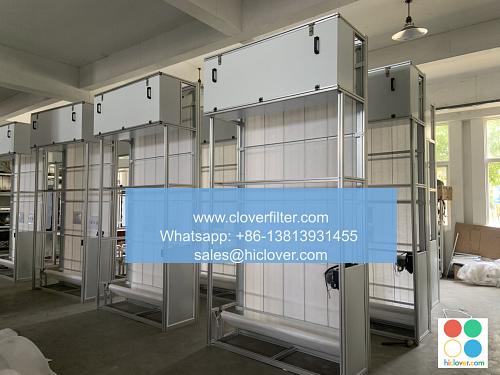The Role of Air Filters in Indoor Air Quality: What You Need to Know

Air filters play a crucial role in maintaining good indoor air quality, which is essential for the health and well-being of building occupants. In this article, we will delve into the world of air filtration, highlighting various application areas, and discussing the importance of using high-quality Air Purification Systems to remove airborne pollutants and contaminants.
Indoor Air Quality: A Growing Concern
Indoor air quality is a significant concern, as people spend a considerable amount of time indoors, exposed to various airborne pollutants. These pollutants can come from sources such as volatile organic compounds (VOCs), mold and mildew, pollen and dust, and pet dander. Prolonged exposure to these pollutants can lead to a range of health problems, including respiratory issues, allergies, and other health complications.
The Importance of Air Filters in Indoor Air Quality
Air filters are designed to capture airborne pollutants, removing them from the air and improving indoor air quality. There are various types of air filters available, including HEPA filters, Activated Carbon filters, and UV air purifiers. Each type of filter has its unique characteristics and is suited for specific application areas, such as commercial HVAC systems, residential air purification systems, and industrial air cleaning systems.
Application Areas of Air Filters
Air filters have a wide range of applications, including:
* Commercial buildings: Air filters are used in commercial HVAC systems to improve indoor air quality and reduce the risk of airborne illnesses.
* Residential homes: Air filters are used in residential air purification systems to remove airborne pollutants and allergens, creating a healthier living environment.
* Industrial settings: Air filters are used in industrial air cleaning systems to remove airborne contaminants and pollutants, improving worker health and safety.
* Healthcare facilities: Air filters are used in healthcare facilities to remove airborne pathogens and contaminants, reducing the risk of hospital-acquired infections.
* Transportation systems: Air filters are used in transportation systems, such as airplanes, buses, and trains, to improve indoor air quality and reduce the risk of airborne illnesses.
Key Considerations When Selecting Air Filters
When selecting air filters, there are several key considerations to keep in mind, including:
* Filter efficiency: Look for air filters with high filter efficiency, such as HEPA filters, which can capture 99.97% of particles as small as 0.3 microns.
* Filter type: Choose the right type of air filter for your specific application area, such as Activated Carbon filters for removing VOCs and odors.
* Maintenance and replacement: Consider the maintenance and replacement requirements of the air filter, including the cost and frequency of replacement.
Conclusion
In conclusion, air filters play a vital role in maintaining good indoor air quality, and it is essential to understand the importance of using high-quality air purification systems to remove airborne pollutants and contaminants. By highlighting various application areas and discussing key considerations when selecting air filters, we hope to have provided you with a comprehensive overview of the role of air filters in indoor air quality. Remember, investing in good air filtration systems is crucial for the health and well-being of building occupants, and it is an investment that will pay off in the long run. You haven’t asked a question or provided any information for me to respond to. Please provide a prompt or ask a question, and I will do my best to assist you.

